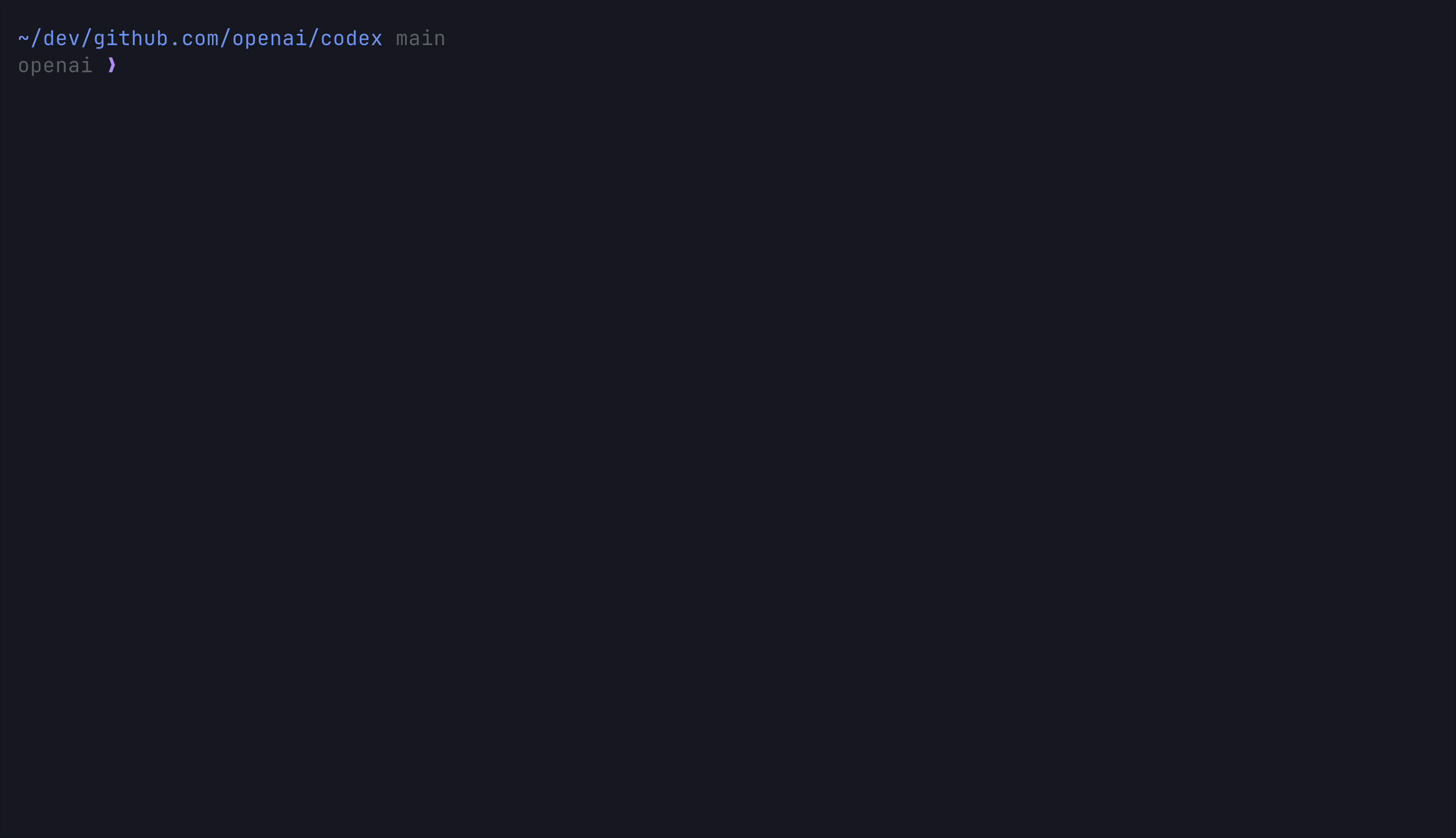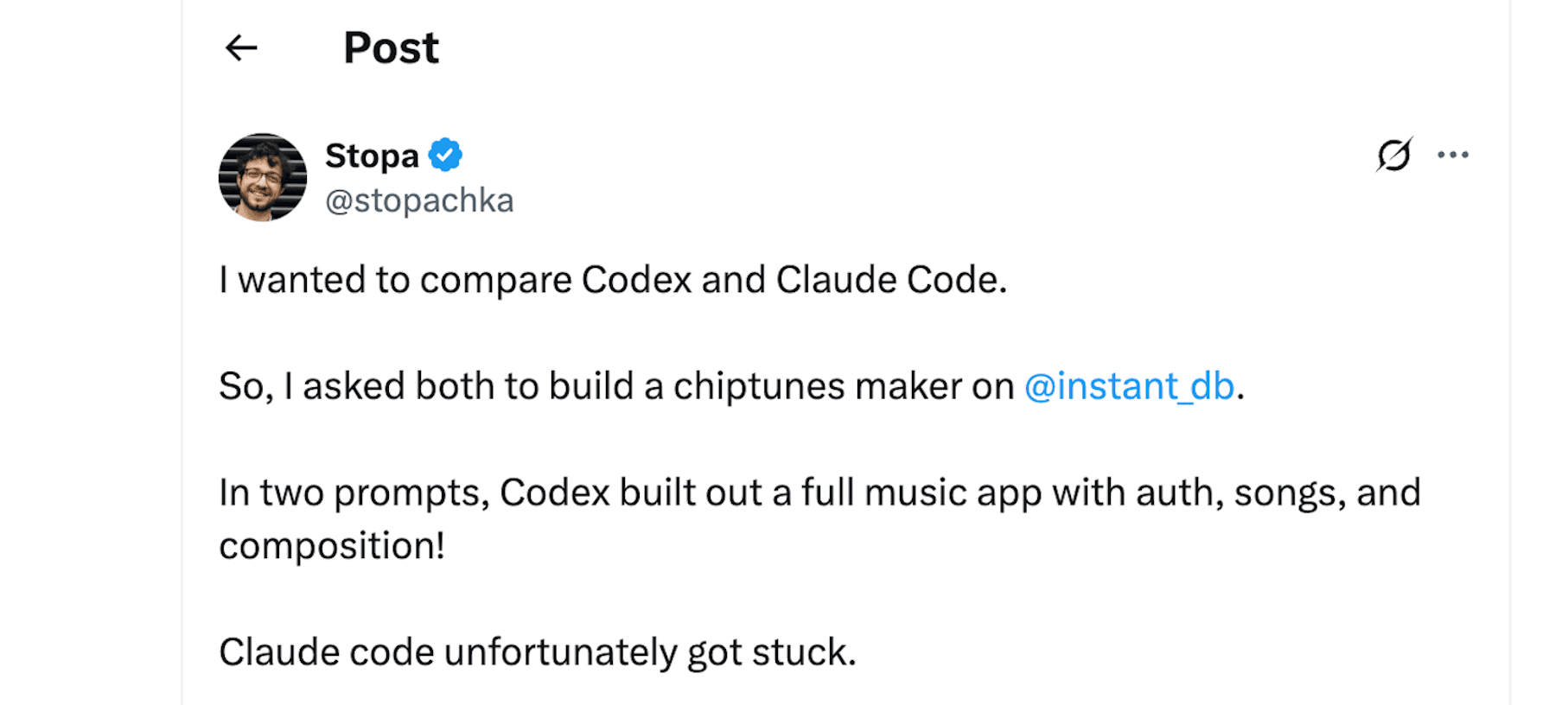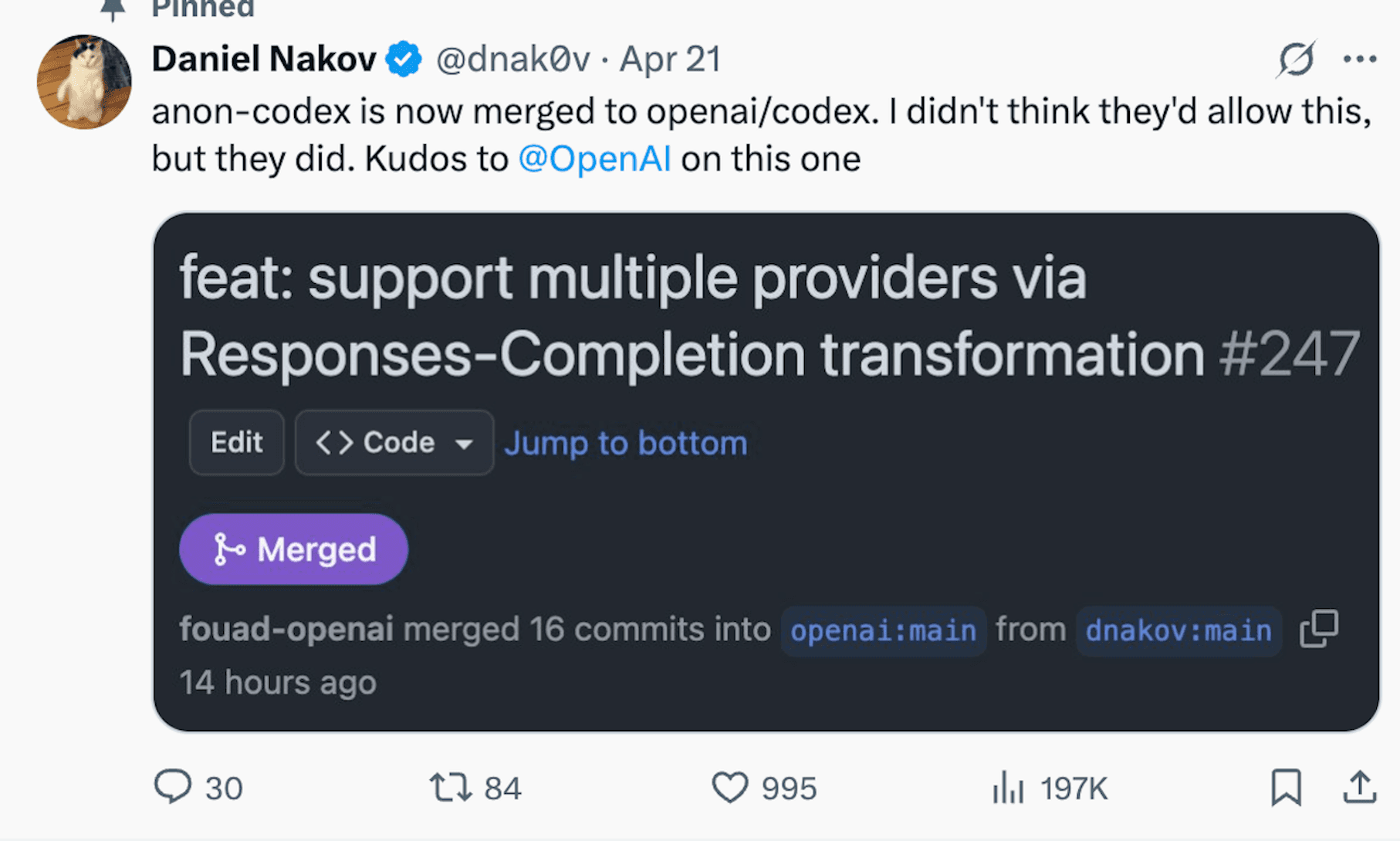
OpenAI released an open-source CLI AI assistant: Codex.
Codex blends ChatGPT and other models (you read that right) with hands-on capabilities like code execution, file manipulation, and project iteration. It supports natural language prompts, as well as visual inputs like screenshots, allowing you to describe what you want to build, modify, or explore.

Considering the CLI has been released only a couple of days ago, developers should be aware that it is not yet stable. Since it is open-source, you can report bugs, issues or initiate feature requests via PR.
Most developers will be eager to take a crack at this.
That said, Codex is particularly suited to developers who already live in the terminal—those who frequently run code, manipulate files, iterate rapidly, and maintain everything under version control. Codex unlocks headless automation power, enabling more autonomous behaviors and paving the way for agentic workflows.
At Tessl, we like to refer to two emerging groups within the AI-native development space: Tinkerers, hands-on builders who love experimenting with new tools, and Explorers, who actively investigate new trends, tools, architectures, and workflows. Both of these groups will be particularly keen to engage with Codex.
Developer communities have expressed unsurprisingly mixed reactions to the Codex CLI.
Many feel that OpenAI is mirroring Anthropic’s innovations, summed up clearly by one dev: “First Canvas, then Codex. Anthropic ideates, OpenAI copies. I’m cheering for Anthropic.”
Others critique Codex’s slower responsiveness and lack of interactivity compared to Claude Code, noting: “Codex is not as entertaining as Claude. The wait times are agonizing, though slightly improved when Claude feeds generative AI-driven feedback—it’s very much a Windows vs. Mac dynamic.”
Yet, there’s recognition of Codex’s strengths, with some developers switching from tools like Cursor, appreciating Codex CLI’s suitability for vibe coding despite limitations in full codebase access.

Ultimately, Codex CLI intrigues developers, though it still has ground to cover to fully win them over.
Codex CLI marks a notable strategic shift toward autonomous software agents, highlighting OpenAI’s growing ambitions in developer workflows. Notably, OpenAI’s support for multiple LLM providers stands in contrast to Anthropic’s more closed approach—raising questions about whether Anthropic missed an opportunity by not going open source.

Be that as it may, some would argue that they consistently have the best model…
Codex’s arriving on the market is still not solving the fundamental problems that developers are feeling. The main blockers remain the ability for models to produce quality code, and we are not closer to giving a blind trust. As Andrej Kaparthy points out:
”The emphasis is on keeping a very tight leash on this new over-eager junior intern savant with encyclopedic knowledge of software, but who also bullshits you all the time, has an over-abundance of courage and shows little to no taste for good code. “
Cost and consistency are also key factors. These tools rely on APIs, and developers must be aware of associated pricing structures by properly tracking their usage.
This move also signals OpenAI’s deepening involvement in the coding space. Patrick Debois points out that though this is an engine to power agents for coding, “it remains unclear whether the target is professional development or the vibe-coding mode.”
As AI coding CLI tools become used across teams—from senior engineers to beginners—organizations will adapt to how software gets built. We’re already seeing people build on top of Codex, as evidenced by projects like this codexMCP repo. This showcases Codex’s potential, and though it might be early-stage, it’s already nudging the future of software development toward more autonomous, and language driven workflows.
The future of coding will indeed be English.